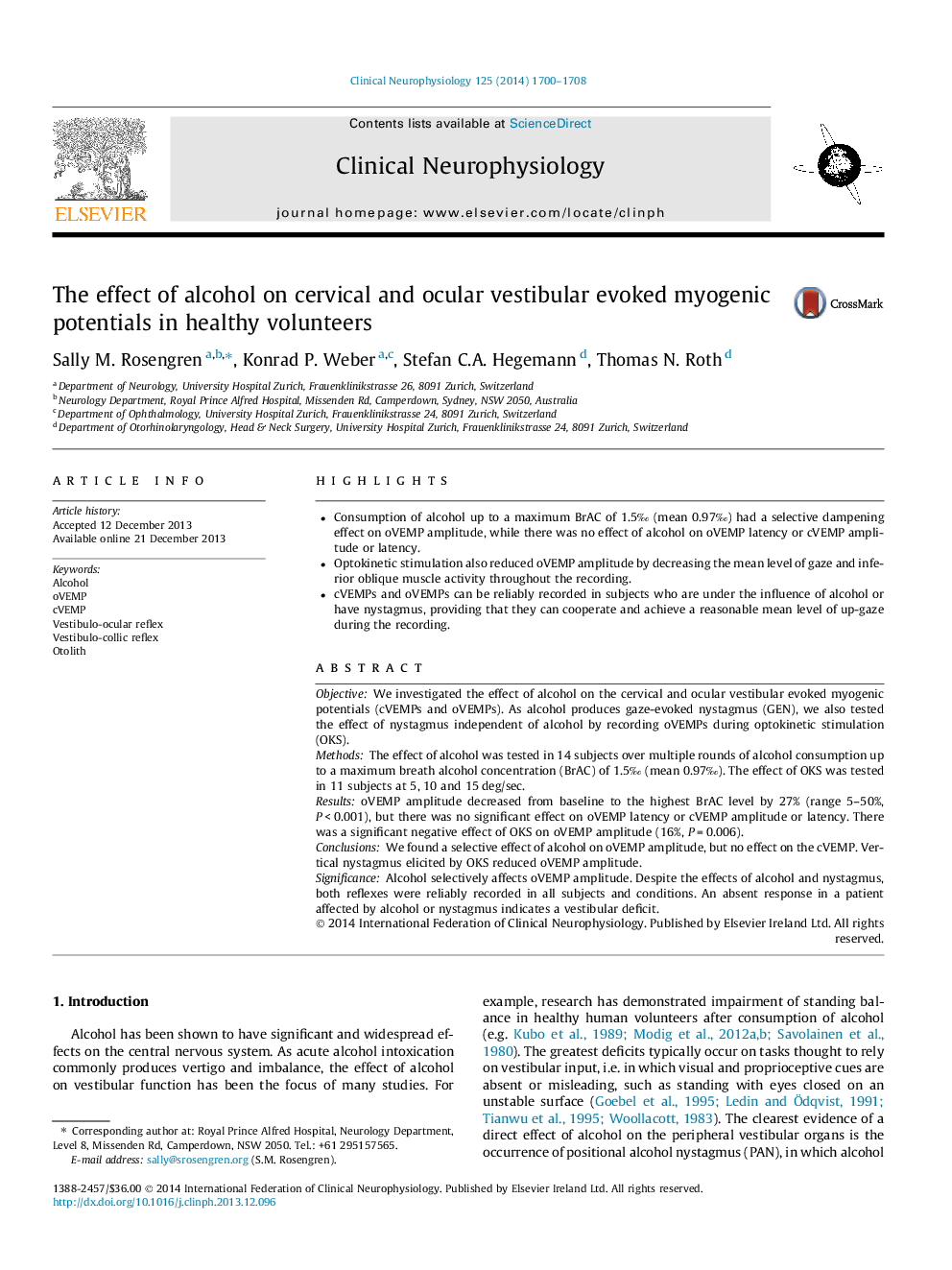| کد مقاله | کد نشریه | سال انتشار | مقاله انگلیسی | نسخه تمام متن |
|---|---|---|---|---|
| 3043499 | 1184978 | 2014 | 9 صفحه PDF | دانلود رایگان |
• Consumption of alcohol up to a maximum BrAC of 1.5‰ (mean 0.97‰) had a selective dampening effect on oVEMP amplitude, while there was no effect of alcohol on oVEMP latency or cVEMP amplitude or latency.
• Optokinetic stimulation also reduced oVEMP amplitude by decreasing the mean level of gaze and inferior oblique muscle activity throughout the recording.
• cVEMPs and oVEMPs can be reliably recorded in subjects who are under the influence of alcohol or have nystagmus, providing that they can cooperate and achieve a reasonable mean level of up-gaze during the recording.
ObjectiveWe investigated the effect of alcohol on the cervical and ocular vestibular evoked myogenic potentials (cVEMPs and oVEMPs). As alcohol produces gaze-evoked nystagmus (GEN), we also tested the effect of nystagmus independent of alcohol by recording oVEMPs during optokinetic stimulation (OKS).MethodsThe effect of alcohol was tested in 14 subjects over multiple rounds of alcohol consumption up to a maximum breath alcohol concentration (BrAC) of 1.5‰ (mean 0.97‰). The effect of OKS was tested in 11 subjects at 5, 10 and 15 deg/sec.ResultsoVEMP amplitude decreased from baseline to the highest BrAC level by 27% (range 5–50%, P < 0.001), but there was no significant effect on oVEMP latency or cVEMP amplitude or latency. There was a significant negative effect of OKS on oVEMP amplitude (16%, P = 0.006).ConclusionsWe found a selective effect of alcohol on oVEMP amplitude, but no effect on the cVEMP. Vertical nystagmus elicited by OKS reduced oVEMP amplitude.SignificanceAlcohol selectively affects oVEMP amplitude. Despite the effects of alcohol and nystagmus, both reflexes were reliably recorded in all subjects and conditions. An absent response in a patient affected by alcohol or nystagmus indicates a vestibular deficit.
Journal: Clinical Neurophysiology - Volume 125, Issue 8, August 2014, Pages 1700–1708
